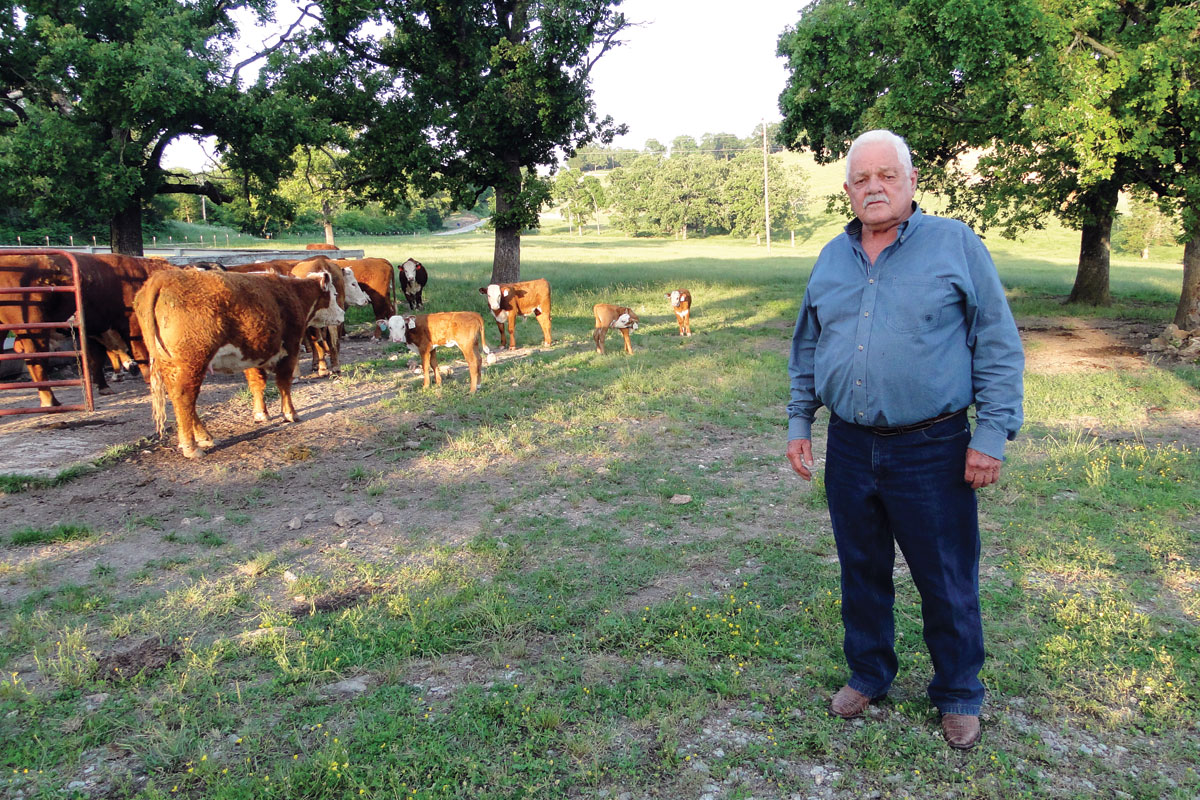
Daphne Sartin described the farmer as ‘the eternal optimist.’ “Very few people get up every morning and go to a job they can’t control,” she said. She explained that they have no control over the weather or prices.
Ten years ago, Travis and Daphne Sartin joined those ‘optimists’ when they moved to their 180-acre farm in Webster County near Marshfield, Mo. While Daphne grew up in Rogersville, Mo., Travis was raised only a mile and a half away from their current home. The Sartins have been married 13 years and have two children; 12-year-old Clay and 10-year-old Nadalyn.
Both youngsters are actively involved in agriculture. They show Shorthorns and have had numerous grand champions and have won showmanship contests. Daphne said, “They also each have their own cattle.”
Travis and Daphne believe farm life is good for children. She said, “It teaches them responsibility.” Travis added, “It teaches them the plain old facts of life; birth, death, hard work.”
Five years ago, the Sartins started their dairy operation. Travis graduated from Missouri State University with a General Agriculture Degree, but soon discovered “there weren’t many jobs in that field, so I decided to milk. It’s just a strange desire I’ve always had.”
With the dairy farm as their primary income, the Sartins also have other jobs. Travis works at Donald Farm and Lawn in Lebanon, Mo., and Daphne is a teacher’s aide at Marshfield Elementary.
Twice a day the Sartins milk approximately 50 cows. Travis does the morning shift, but occasionally has a milk hand to help with the afternoon milking.
The dairy consists of “mostly crossbreds, and then there’s a little bit of everything,” Travis said. “Actually, I’m trying to get toward all crossbreds, but to have them, you have to start with purebreds.” He is working with Jerseys and Holsteins, and doing “a lot of AI crossbreeding.”
He does not utilize synchronized AI, but said, “We do hold the bulls out and strive for no calves in July and August.” He prefers fall calving.
Travis believes the crossbred calves “have less mortality rate.” He added, “They work better on rotational grazing.”
The rotational grazing system was implemented on the Sartin farm 2 years ago. He said, “Rotational grazing and crossbreeding has lowered feed costs, and lowered overhead in general.” Last year, he installed three automatic waterers and 15 hydrants so he could use portable water tanks.
Everything changes and farming is no different. Looking toward the future, Travis observed, “I see more of a shift toward rotational grazing, just because of feed costs. You’ve got to find a cheaper way to farm.”
The best advice he had for anyone wanting to start a dairy operation was “watch expenses, because you can’t control what you get paid.”
Feed is a big expense. The Sartins feed grass hay. Travis said, “We try to feed a higher quality grass hay. We buy some, but raise most of it.”
Over the next 5 years, Travis would like to improve pasture conditions and soil fertility, have more variety in forages, and have more facilities. He said, “We need to expand and grow.”
While the farm is growing, so are Travis and Daphne’s children. He said the main work ethic he hopes to instill in their kids is, “if you want anything, you’re going to have to work for it.”







